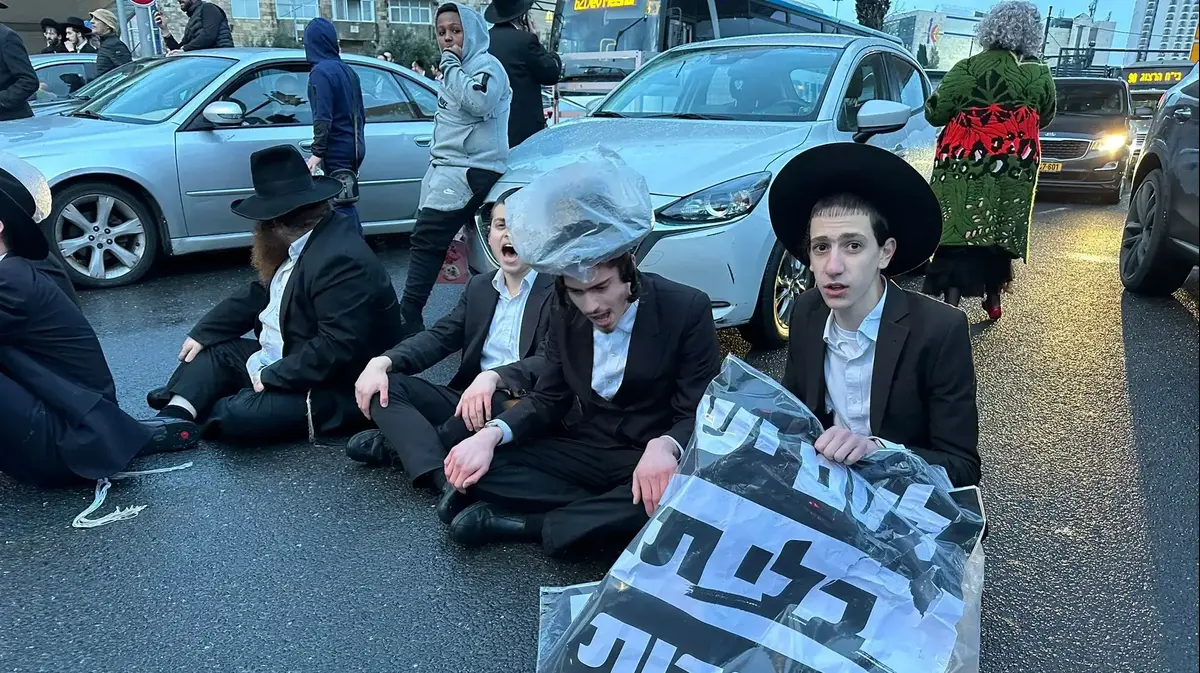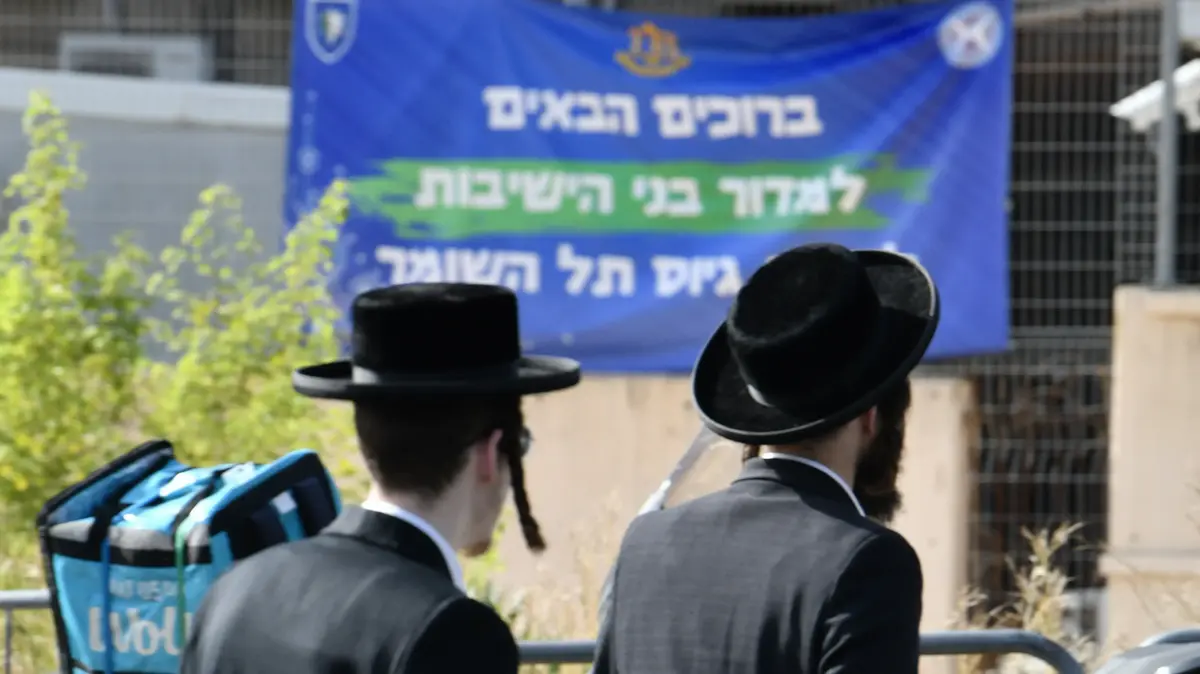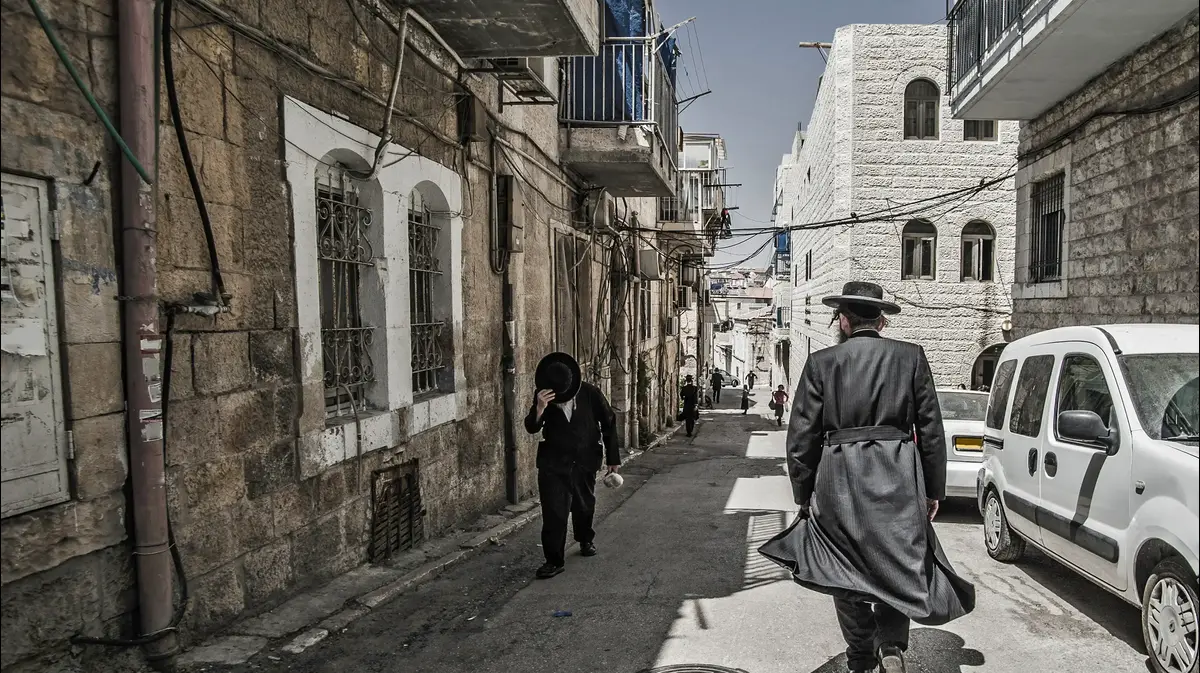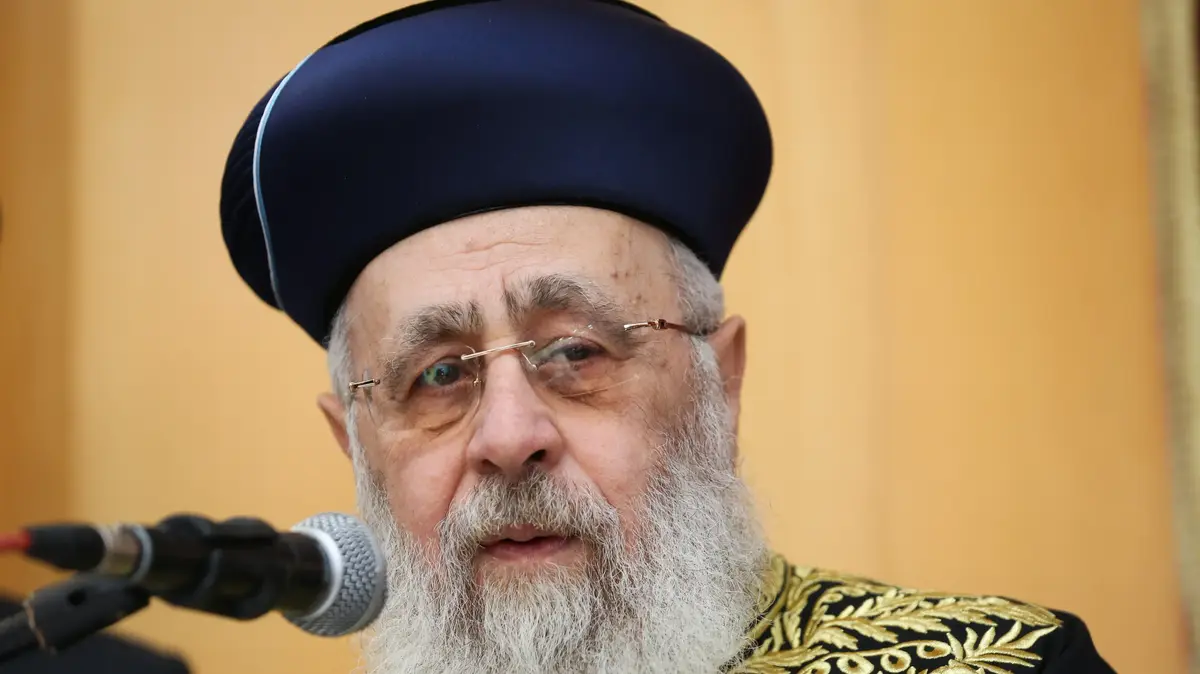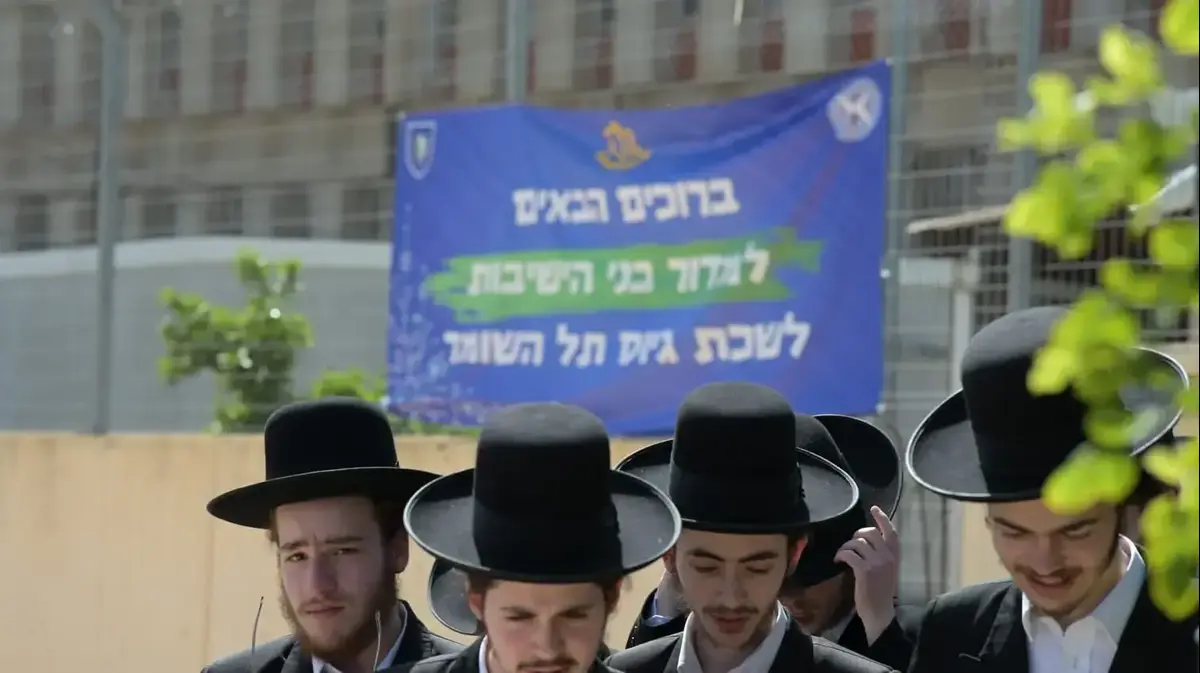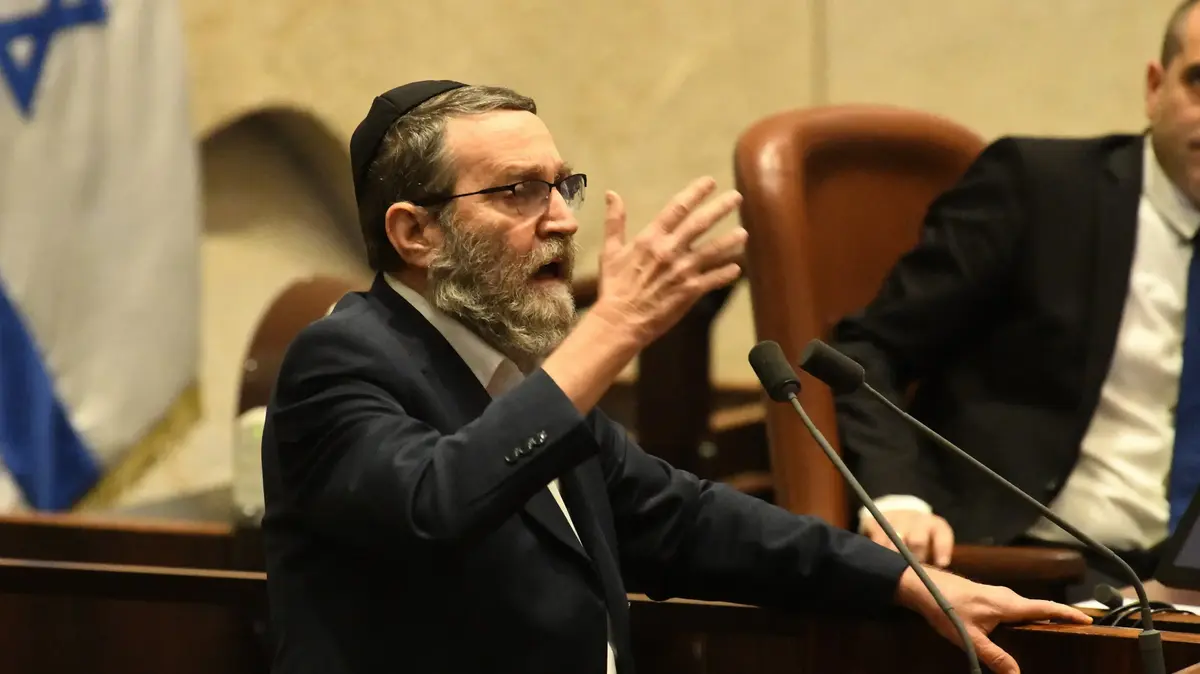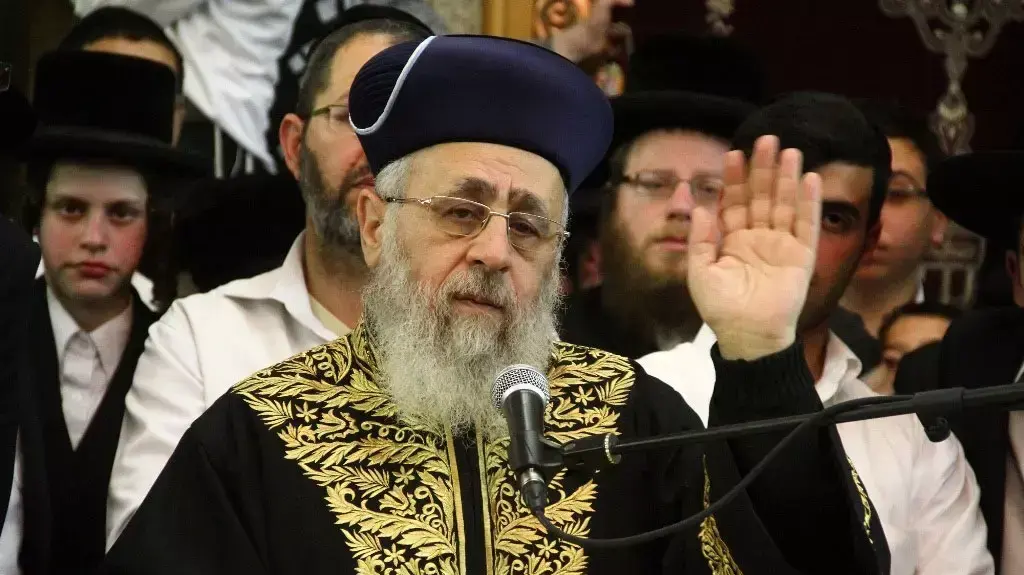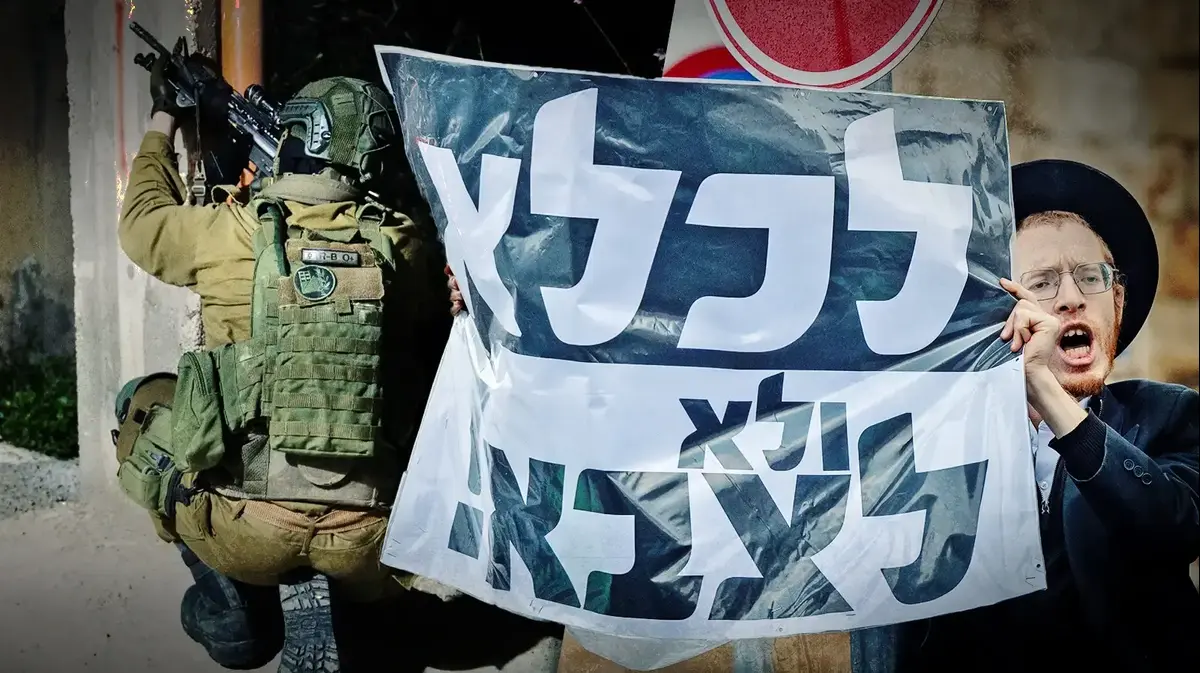The Blue Chair section, and this time - Rabbi Yitzchak David Grossman, founder and president of the Migdal Or educational institution network • On the harassment: "The rabbis understand that a discourse is needed" • Interview
Rabbi Yitzchak David Grossman
Photo:
Joshua Joseph
Rabbi Yitzchak David Grossman,
founder and president
of the Migdal HaEmek "Migdal Or" network of educational institutions
, is a member of the Chief Rabbinate Council and heads the "Rabbi Grossman factories."
Winner of the Israel Prize for Lifetime Achievement (2004), Medal of the President and Medal of Tolerance
Rabbi Yitzchak David Grossman, the standard of living in Israel dropped by 4.4 percent in 2020, the sharp drop in nearly 20 years. 1.5 million people could enter the cycle of poverty, and talk about the peak of the economic crisis still ahead of us. What to do?
"We encounter a very strange phenomenon. In Tel Aviv, you are proud of high-rises and skyscrapers.
At the same time, our technology is evolving rapidly.
But in the areas of welfare and poverty care, especially in the periphery, there is no development.
I have been following these areas for 50 years and can not understand - how to this day they have not emphasized this point?
There are families in Israel who are second and third generation of poverty. "
You distribute packages to the needy, but according to your teaching, the solution must be national.
"For many years now, the Migdal Or organization, of which I have been leading, has been leading Operation Hag Sheva, distributing food packages to families in need. On Passover, it is easy and material, because the first section of the Passover laws is to take care of the poor. The Haggadah also begins with butter. Our ancestors ate in Egypt, I was able to do everything possible - everyone who should be invited. That is, our sages also emphasized mutual help. So I told the youth - we will collect groceries, arrange packages and bring to the needy.
"But, and this is a big but, I notice that every year the situation gets worse .
Because of the corona many people who have never asked for help in their lives - suddenly ask for help.
As of this week, we have distributed about 17,000 packages, and in light of the situation, we will continue after the holiday.
The state does do a lot, but to this day I have not seen a situation where the government leaves everything and places emphasis on these issues.
I hope that the new government, when it is formed, will prioritize this issue and put us on a new wave.
Billions have been invested in the corona plague, and poverty is also a kind of plague.
You have to find every way in the world to get into the thick of things once and for all. "
You are optimistic. Meanwhile, there is an increase of about 200% in the demand for food baskets, along with a decrease in donations. How do you meet demand and where do you get more donations?
" To raise money, and this year it was of course not possible.We do the maximum - we turn to people, take future debts, we have a partnership with the Shufersal chain that allowed us to raise donations in its branches. After all, it is impossible to say no to the requests we receive. ".
What do you see and hear from them?
"I hear a lot of sadness. A man will not despise himself for groceries if he has no real need for them. It shows where we are. But precisely one story that captured my heart came from the other side, of the volunteers. A man who lost his legs came to me and told me "Rabbi, I do not have legs but I have a heart. I have a van and I want to help with the distribution of packages. I will be staffed by a volunteer, I will drive him where he needs to and he will come down and give the packages." And so it was. "
From Raichel to Rivlin
Your activity deals with a tier on the social side.
Through members of society, religion, education, culture and academia, you lead the "Social Forum", in order to produce real change in Israeli society.
A treaty on the subject was recently signed at the President's House, but does it have the power to unite us?
"We all feel the polarization. In Corona there was not only physical distance, but also social distance. In the last election I noticed that most broadcasts focused on the other why not good and inappropriate. You can barely see why yes, what can be done. And into this mess the ultra-Orthodox and secular enter, story It is difficult in itself. You can see that there is a distance from each other, and that is a very big danger. Unity has power and hatred is a terrible thing; so I and many others - including Miriam Peretz, Gadi Izenkot, Natan Sharansky and Idan Raichel - decided to lead the agreement.
" The problem is the youth.
We said, let's start from the bottom, gather young people from youth organizations, organize discussion circles, and start explaining.
I do not want a child from Kibbutz Yifat, Ginegar or Mizra to feel bad talking to a religious or ultra-Orthodox child.
We live in the same country, the same people, why should there be hatred? "
You live in Migdal HaEmek. You must have neighbors who do not keep Shabbat. This may create a gap, distance.
" It is true, I have neighbors here who desecrate Shabbat, and tell you something?
We are best friends.
I am a rabbi, I have a beard, a black hat and a stripe and they do not keep the Sabbath.
This does not contradict.
They will do what they believe in, and I will do what I believe in. "
You argue that politics also has a part in the discourse of hatred.
" Politics has expanded that.
In politics, a person has to take care of himself, and when the way of hatred brings more votes - then so be it.
But in this way they bring destruction to the country.
So gentlemen, my dear, there is a world even after the election.
You do not understand how much power you have and how you affect the youth.
Our convention has also been sent to key politicians and party leaders with the aim of changing the language, lowering the flames of hatred.
Hatred is destruction. "By the
way, is the rift in the people of Israel so severe? Some claim that we are not in such a divided period, and that throughout history we have seen greater rifts and divisions; that there is a center of gravity that both secular and religious gather around.
" But the processes of the past year, for example the election campaigns, have led to a significant split.
The Second Temple was destroyed because of free hatred, which is something we must avoid so that God forbid we do not reach the destruction of the Third Temple.
"Just because a person does not think like me, does not mean that he is against me. At the entrance to my house I put up a large sign at the entrance: 'Let there be a wish that each of us has the virtues of our friends and not their disadvantage'. In this matter I say: Why do we have two eyes? "Unanimously. So it takes two eyes - one to see my shortcomings and the other to see what's good about the other.
There is an impression that the corona has calmed, for example, the strained relations between religion and state.
After that we are expected to see a change in this trend - and things will return to focus?
"Every effort must be made to leverage the corona to find the right path that will allow for coexistence. That should be the task, and it depends on the leaders, their way of speaking, the message they convey, that unity should be emphasized. And unity is not a theoretical thing, because words have an impact. We will all speak a moderate and unifying language, we will live and we can live - our reality will change for the better. "
Over the years, you have suffered more than once from the ultra-Orthodox community's attitude toward you.
In the past, you were even called "Haredi Muhammad."
Do you still suffer from this attitude?
"It is true that there were less good times, but I have won that today the treatment of me is wonderful, of all. People respect the work we do. It is written in the proverbs 'as water face to face yes the heart of man to man'. The attitude of others to us is a reflection of how we treat him. You approach people. "
"Whoever Wants - Pray"
You said in the past that your initial encounter with the youth of Migdal Haemek took place through a visit to the discos, and that the secular youth of yesteryear were more innocent.
To what extent has the ultra-Orthodox youth maintained their innocence, and to what extent is it exposed to the various social networks and technologies,
for example?
"I came to Migdal Haemek from Mea Shearim, and I was naive. I asked where the yeshiva and the youth were, and when they told me they were at a disco, I was sure it was a disco yeshiva. The youth were shocked when he saw me, they thought if a rabbi like me came, I made an excellent connection with them. At one point I went with one of the boys to visit his brother in prison, and then I also decided to volunteer and teach the prisoners patriarchs twice a week. Slowly a program called 'Midrashot' was created in prisons, and today there are close to 1,000 inmates There were already people at the IPS who said that this was the most successful program in terms of rehabilitation.
From these ideas we also started the Migdal Or educational campus, which today has more than 22,000 graduates.
As for the ultra-Orthodox youth today, it is no secret that there is a very big problem in light of the developments of social networks like Instagram and Facebook, and as a result a very strong effect is also created in the ultra-Orthodox youth. Before all these technologies, if you wanted to sin and see things wrong, you had to get up, leave Mea Shearim for example, go out and look.
"Today the iPhones have made a big impact.
Take out an iPhone and connect to whatever you want.
In reality this has brought great weakness in many children.
This is an academic weakness, because in the end being a yeshiva member is a very hard job, and if the child's head is elsewhere - he will have a hard time connecting.
A child who has difficulty connecting and begins to behave differently feels out of place.
That is why, among other things, we established the Zoharim youth village, in order to return to the groove of ultra-Orthodox youths who have fallen and deteriorated. "
How do you get back to a deteriorating youth beneficiary?
"We are with them on their way, accepting them as they are. One wants to pray - praying. If not wanting, then not wanting. There are therapeutic horse farms, agricultural activities, we connected with the ORT network for the benefit of the youth, all to allow them the conditions they need." .
Do you also recognize positive effects in technology?
"The guys who end up back in the groove after the challenges of smartphones of all kinds - come out much stronger."
Everyone is talking these days about the Parshas Yehuda Zashi Zahav, but perhaps it symbolizes a broader phenomenon that is worth talking about.
So without addressing this issue, how common are sexual predators and sexual harassment in the ultra-Orthodox sector, and how should the phenomenon be dealt with?
"Lately there has been a lot of awareness to talk about. It used to be forbidden to talk about it, it was taboo. In light of the situation, as it develops today and case after case, then both rabbis and educators in the ultra-Orthodox world understand that a dialogue is needed. More open than ever. People understand that in light of the multiplicity of cases, they must talk about it, warn against it and address it.
"I recognize a great change in the ultra-Orthodox world, the rabbis also understand that it needs to be addressed.
In all Talmud Torah and Yeshivot - the great rabbis are of the opinion that children should be explained to be careful if they receive such and such suggestions.
The whole issue of awareness to speak out, as mentioned, has gained a lot of momentum. "
Awareness is one step, but sometimes turning to state authorities to complain about sexual assault is seen as treason and can end in exclusion. How do families educate youth not to shut up but to complain?
" I can tell you? That today are reported.
For me, everyone in institutions, and not just for me, knows that the way is to report to the authorities and not to hide things under the rug.
There is an understanding that once unreported, then a person who harms may hurt other people.
There is an understanding that a person who complains not only saves himself, but saves more people. "
People are less afraid of being ostracized from the community?
" I think there is less fear in this matter, definitely. "
Some say that in the ultra-Orthodox community sexuality is out of bounds until just before the wedding. This is also the case today? Is there a way to normalize that there is such a thing - sexuality, sex education?
"In the general public it is called that, in our country it is called differently - a moral lesson, for example.
Same purpose but more subtly.
And we give it more emphasis today than ever before in light of everything we see around us. "
Finally, in July, President Rivlin is expected to step down.
In the past, you were talked about as a candidate for the job.
Is it more relevant to you?
"It is irrelevant. Twice I was offered to be the Chief Rabbi of Israel. Rabbi Ovadia Yosef led it at the time, and the second time Rabbi Elyashiv. All the rabbis of Israel signed, and my father objected. He insisted that my mission in life is youth. "Beyond that - I do not think I'm fit to be president. So, do not want what you do not."
Monday evening.
What do you wish for Beit Yisrael?
"The holiday of Israel is called the holiday of freedom, because we left laboratories for freedom; and freedom is not only physical - but also spiritual and mental. I wish we would go out for spiritual and mental freedom, inner freedom. That we will be able to see the good in the country, in life.
√ For
suggestions and comments: Ranp@israelhayom.co.il


